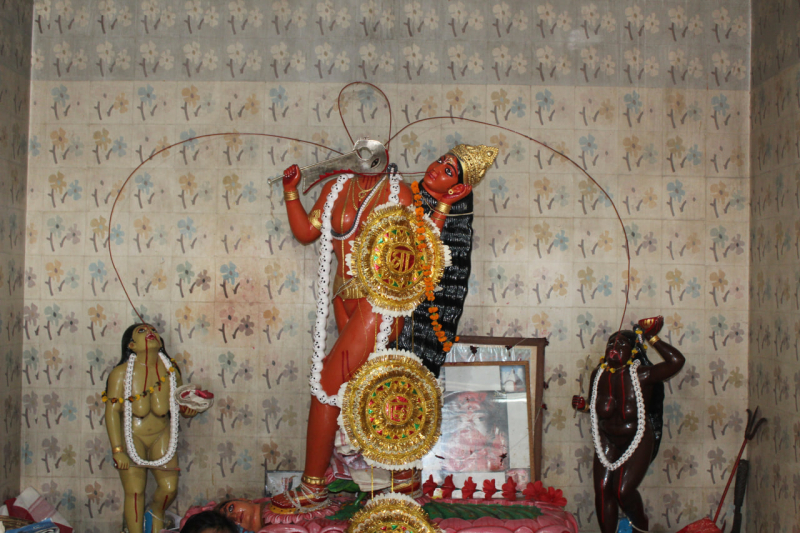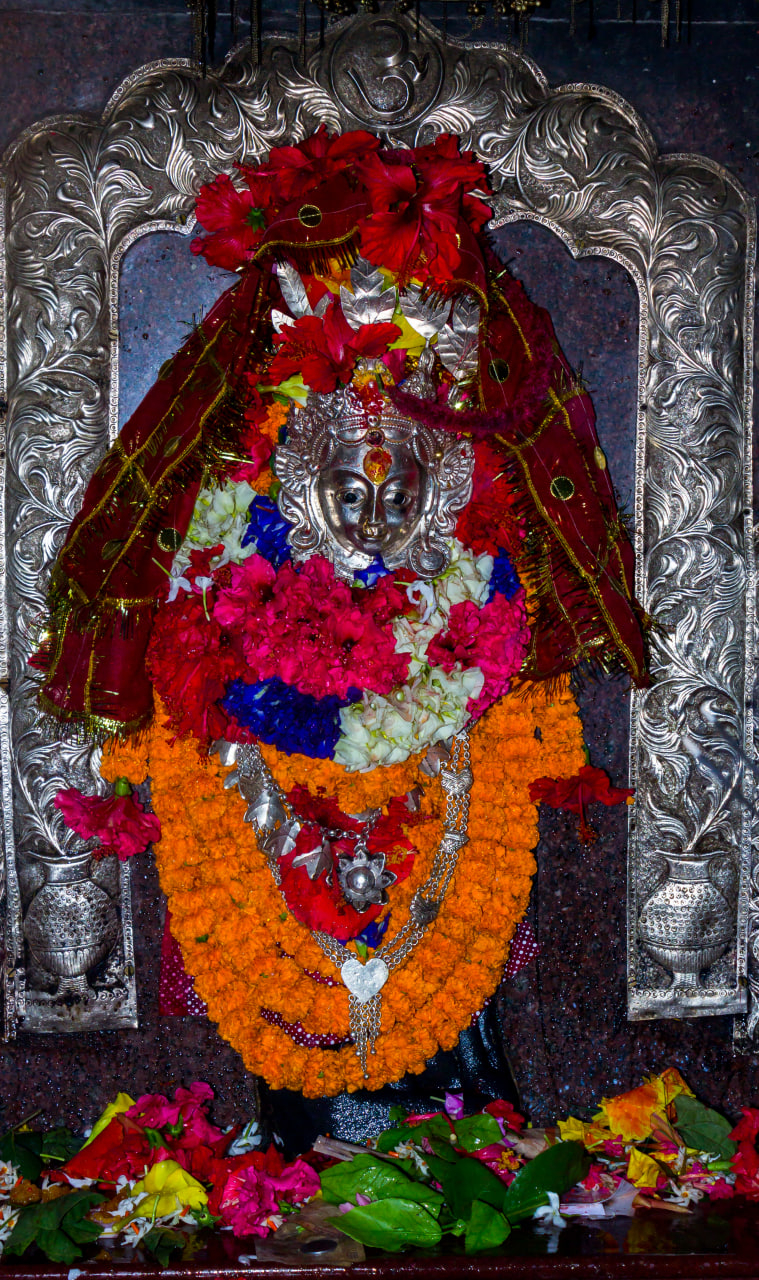Chinnamasta
Chinnamasta is an intriguing and deeply resonant female deity in Buddhist and Hindu traditions. A vivid portrayal captures Chinnamasta as a captivating allure figure, clutching her severed head in one hand while her two attendants consume her life essence. This evocative tableau is a potent representation, conveying the transcendence of ego and the poignant sacrifice of self. It masterfully illustrates the profound journey toward selflessness and the liberating path of ultimate freedom.
Chinnamasta's depiction encapsulates the profound potency of spiritual practice in effecting transformation. Her self-offering is a symbolic embodiment of shedding the illusory self, a process that paves the way for unveiling the genuine essence of reality. Her bold act of self-decapitation emanates a relentless intensity, a testament to her unwavering resolve to sever attachments and dissolve delusions. This act, underscored by an uncompromising commitment, emphasizes the vital significance of slicing through the veils of illusion that tightly bind us to the relentless cycle of suffering.
Chinnamasta is pivotal in select tantric practices, where adherents immerse themselves in rituals and contemplative meditations to establish a profound connection with her transformative energies and summon her benevolent blessings. Her self-offering stands as a poignant testament, reminding all of the unwavering lengths to which enlightened entities extend themselves to alleviate suffering for the greater welfare of others.
Chinnamasta's representation as a decapitated deity, juxtaposing unyielding determination and compassionate surrender, unfurls as an emblematic cipher of the profound realities embedded within the tapestries of Buddhist and Hindu traditions. This portrayal, a fusion of potent forces, beckons practitioners to embark on deep journeys of self-transcendence.












